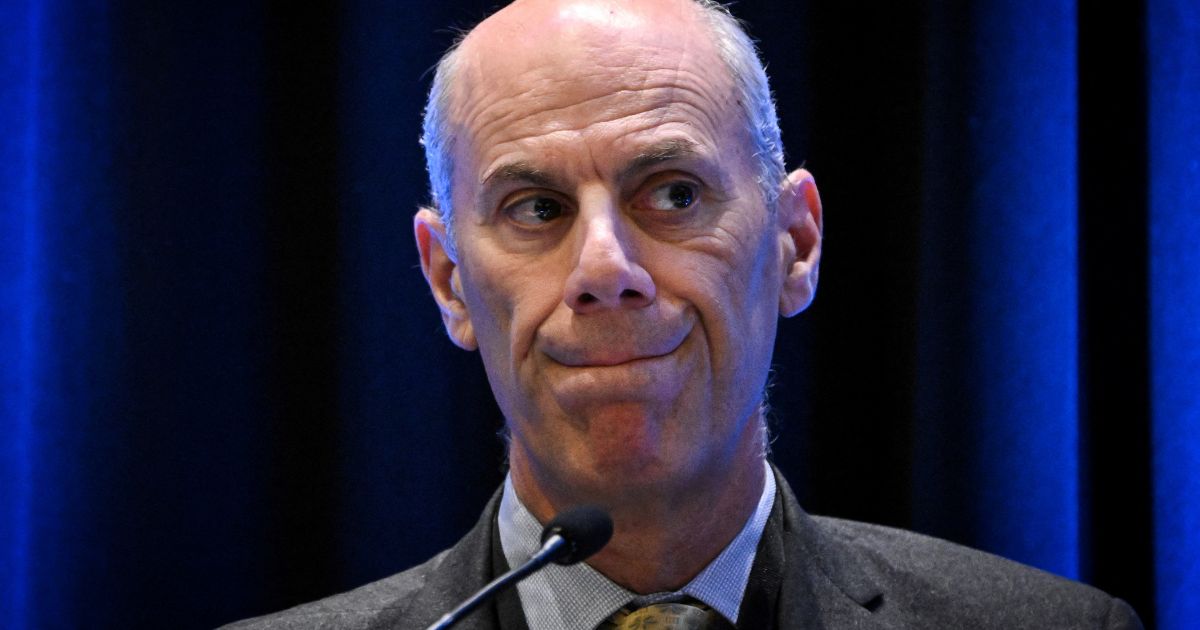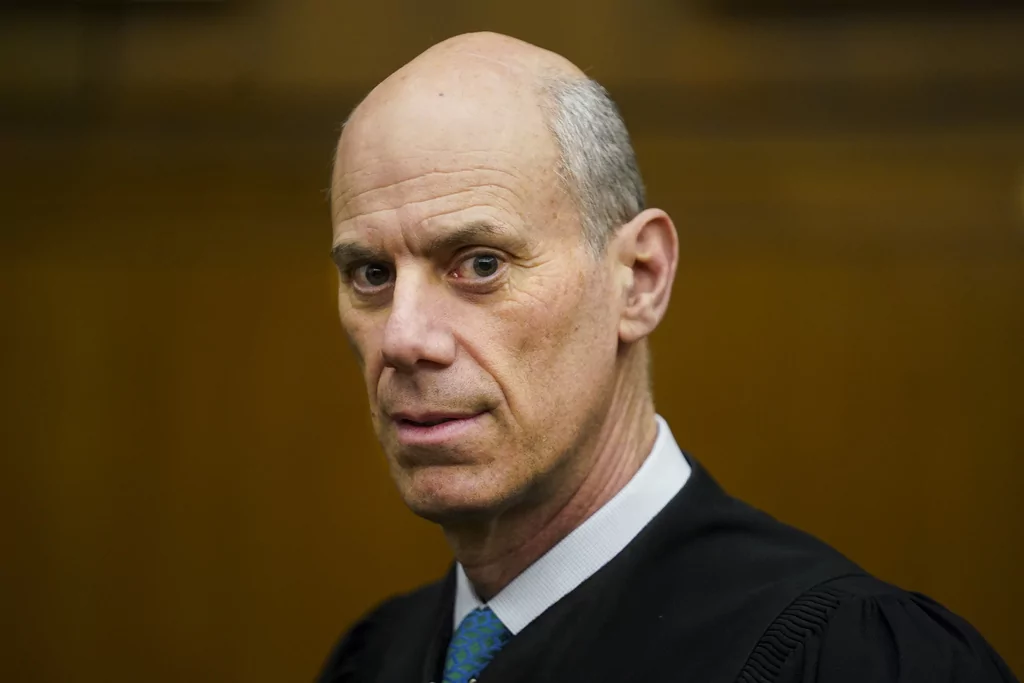Supreme Court springs back to work with four key cases on the docket – Washington Examiner
The Supreme Court is set to resume its sessions with four significant cases on its agenda next week. These cases cover diverse issues including vaping regulations, bankruptcy law, Holocaust survivor claims, and transgender healthcare rights.
1. **Vaping Case**: The Court will hear *Food and Drug Administration v. Wages and White Lion Investments*, addressing the FDA’s rejection of flavored e-cigarette marketing applications, aimed at protecting minors from vaping. A Texas-based e-liquid distribution company has contested the FDA’s ruling, claiming it lacked proper notice.
2. **Bankruptcy Proceedings**: In *United States v. Miller*, the Court will determine if a bankruptcy trustee can reclaim tax payments made to the IRS before a company filed for bankruptcy. The case revolves around the intersection of federal bankruptcy law and state law regarding fraudulent transfers.
3. **Holocaust Survivors’ Claims**: The Court will revisit *Hungary v. Simon*, in which Holocaust survivors seek to sue Hungary for its role in transporting Jews to Auschwitz during WWII. The case presents challenges under the Foreign Sovereign Immunities Act, which generally protects foreign states from lawsuits in U.S. courts.
4. **Transgender Healthcare**: One of the most anticipated cases is *United States v. Skrmetti*, where the Court will evaluate a Tennessee law that bans transgender medical treatments for minors. Critics argue this law discriminates against transgender youth, violating their equal protection rights.
The Supreme Court’s decisions on these cases may have far-reaching implications across various legal and social landscapes.
Supreme Court springs back to work with four key cases on the docket
The Supreme Court will be abuzz next week as the justices are poised to hear four oral arguments on matters ranging from vaping to transgender medical procedures.
The high court has been out of session for over two weeks and is scheduled to come back on Monday for the December session.
But what exactly will the conservative-learning court be asked to consider? The Washington Examiner breaks down the four cases on the docket next week.
Vaping on the docket
First up next week will be oral arguments in Food and Drug Administration v. Wages and White Lion Investments. The Supreme Court has been asked to evaluate the FDA’s rejection of marketing applications for flavored e-cigarettes, which is said to be part of a large effort to curb teens and minors from vaping and smoking.
While lower courts have upheld the FDA’s decision to deny new applications, the right-leaning U.S. Court of Appeals for the 5th Circuit sided with a Texas-based e-liquid distribution company — one of several that have claimed the rejections were unfair.
Industry players have insisted the FDA denials were imposed without giving proper notice.
If the court rules against the agency, it would be in line with several recent decisions seeking to weaken federal regulatory agencies.
Bankruptcy precedent
Next, the Supreme Court will hear United States v. Miller, which will determine if a bankruptcy trustee can recover a debtor’s tax payment to the Internal Revenue Service.
In this complex case, the high court will be taking a close look at Section 544(b) of the Bankruptcy Code, which allows bankruptcy trustees to “avoid,” essentially undo or recover, debtor transfers or payments made before bankruptcy.
The case goes back to 2014, when debtor All Resorts Group paid off the personal tax debts of two executives totaling $145,138.78. Three years later, the company filed for bankruptcy. As such, the trustee for the bankruptcy proceedings began proceedings to avoid the previous payments based on the bankruptcy code and Utah’s Uniform Fraudulent Transfer Act. The state law allows for a longer time period, four years, for a trustee to avoid the payments compared to the federal window of two years, per Reuters.
However, unlike private creditors, the IRS is entitled to sovereign immunity. Additionally, the government has claimed Utah law cannot be used to recoup the payments as sovereign immunity would block any attempts to avoid the funds outside of bankruptcy. The government has argued that it cannot be used within bankruptcy.
Meanwhile, the bankruptcy trustee has argued that Section 106(a) of the Bankruptcy Code details when sovereign immunity can be waived, claiming it applies to both Section 544 and state law.
While the bankruptcy court, district court, and appeals court have ruled in favor of the trustee, the Supreme Court has the final say.
Holocaust survivors
For the second time, the high court will also be hearing arguments in a dispute between the Republic of Hungary and Holocaust survivors seeking justice and compensation.
In Hungary v. Simon, the justices will be asked to determine if an American court is the proper forum for the survivors to challenge Hungary and its railway for transporting more than 400,000 Hungarian Jews to Auschwitz in Poland over the course of two months in 1944.
The lawsuit was originally filed in 2010 with the intent of forming a class-action case against the country. It is made up of survivors and their heirs, some of whom survived Auschwitz.
Typically, under the Foreign Sovereign Immunities Act, foreign nations are protected from lawsuits in American courts. However, the law does allow for exceptions when the suit involves “property taken in violation of international law,” according to the Associated Press.
The court originally heard arguments in the case in 2021 but sent it back to the appeals court due to another decision involving Germany.
Transgender healthcare
Likely the most anticipated case on the docket next week is United States v. Skrmetti, in which the Supreme Court will consider Tennessee’s law that bans transgender medical treatments for minors. This includes procedures such as gender-transition surgeries, hormone therapy, or puberty blockers.
Critics, LGBT activists, and the Biden administration have lambasted the law, claiming it violated the equal protection clause by discriminating against transgender people. Specifically, administration officials have said it violates the clause as it denies puberty blockers and cross-sex hormones to transgender youth “while allowing non-transgender minors to access the same or similar procedures.”
An American Civil Liberties Union of Tennessee spokesperson previously told the Washington Examiner that the case being taken up is about “fundamental freedom to access vital, life-saving healthcare.”
Meanwhile, supporters of the law have insisted the ban is not discriminatory.
“It is not unconstitutional discrimination to say that drugs can be prescribed for one reason but not another,” attorneys for Tennessee Republican Attorney General Jonathan Skrmetti’s office wrote in an October brief to the Supreme Court. “Weighing risks and benefits, States (and the federal government) draw age- and use-based distinctions for drugs all the time.”
The case is likely to set a precedent as the Supreme Court has long avoided getting involved in disputes surrounding transgender issues and rights.
While the case is so intertwined with the debate within the U.S. on transgender access to bathroom facilities or youth sports, the justices are only tasked with answering the question: Does the law violate the 14th Amendment’s Equal Protection Clause?
" Conservative News Daily does not always share or support the views and opinions expressed here; they are just those of the writer."





Now loading...